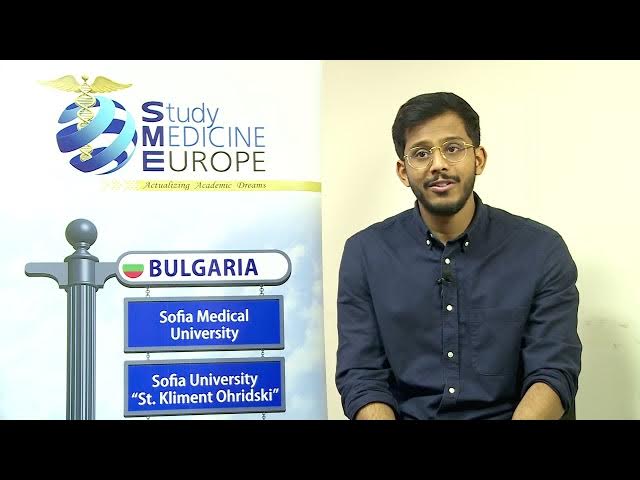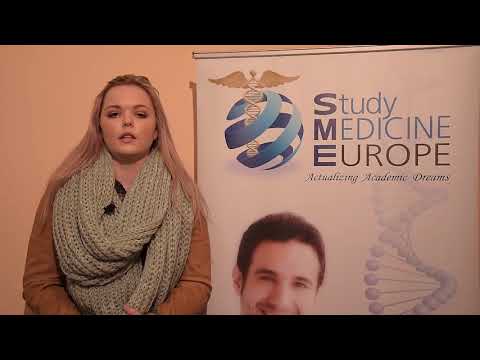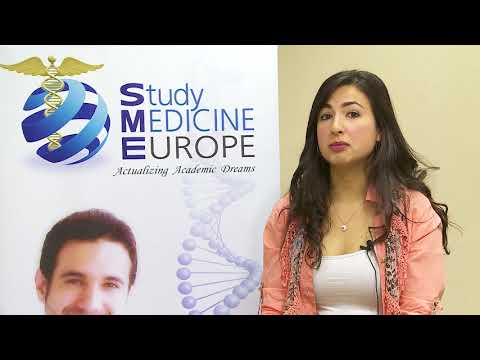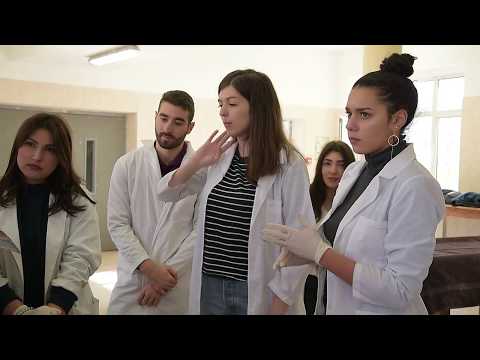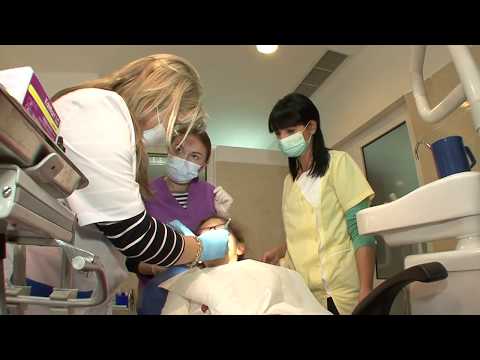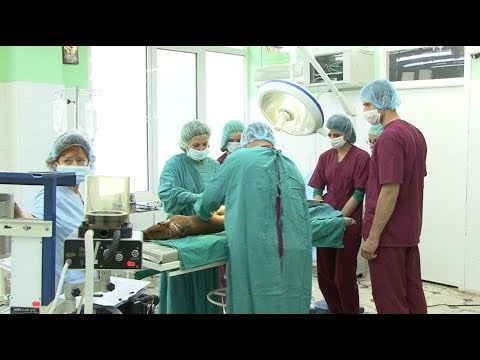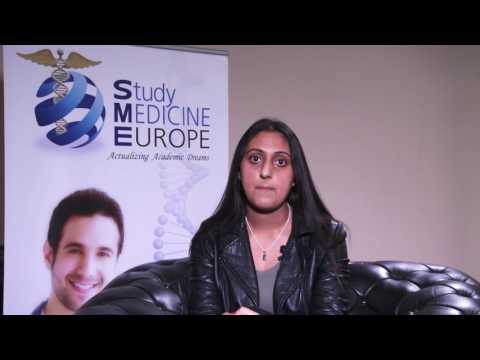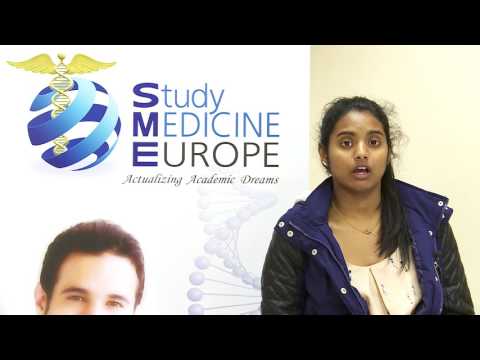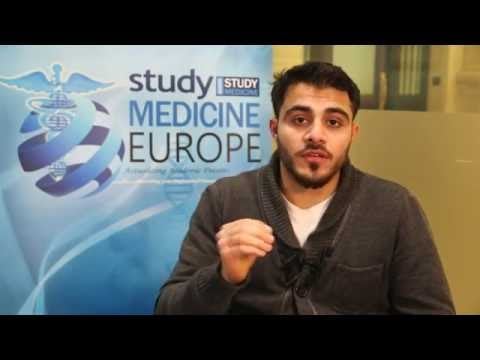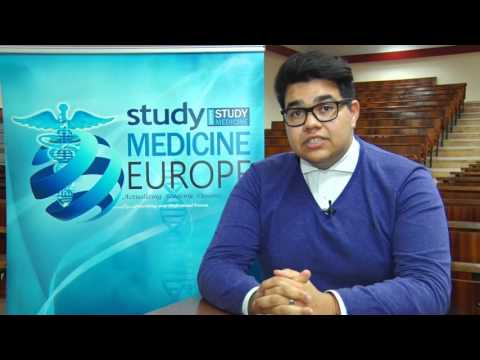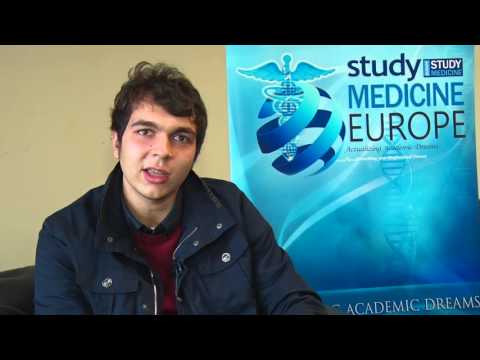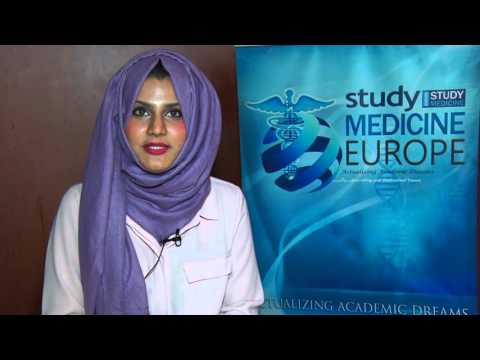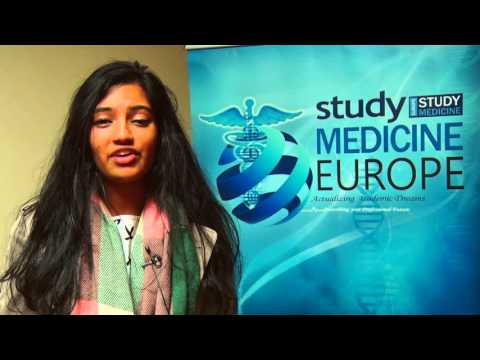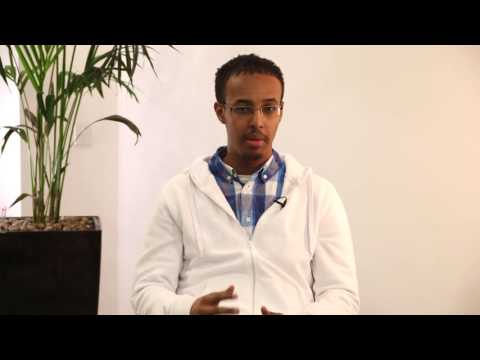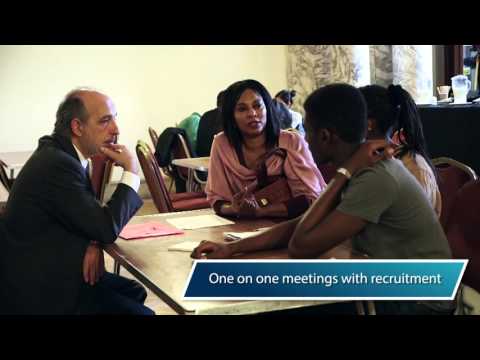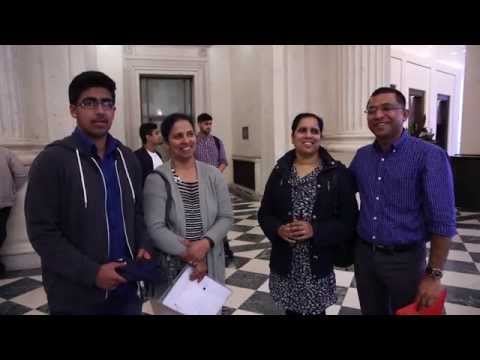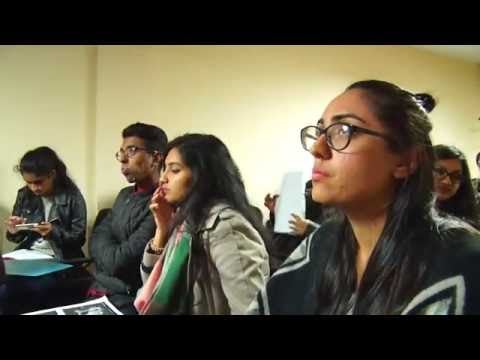Online Medicine Study: Quick Facts
Admission
No entry exams
Tuition fees
$6,950/year
Duration
5 – 5.5 Years
Intake
January, May, September
Funding
Not Available
Graduate Entry
4 Years
Universities to Study Medicine in English
+
 How Does Studying Medicine Online Work?
How Does Studying Medicine Online Work?
- European and North American universities give students the valuable opportunity to study parts of their undergraduate and graduate programmes online.
- Students that complete part of their medical school online graduate with a full, internationally-recognised Doctor of Medicine (MD) qualification.
- Undergraduate and graduate students can study theoretical modules — Preclinical modules in Europe and Basic Sciences in North America — from home.
- When students are studying online, they still attend live lectures and tutorials, then study is enhanced with learning platform resources.
- The online learning platform incorporates live-streaming, tutorials, resources, question banks, online exams, interactive sessions, and more.
- Altogether online studies gives students the chance to complete international medicine programmes without immediately relocating so studying abroad is accessible, tuition fees are affordable, and there are options for individualised study plans.
- Universities support students to undertake the parts of their programmes that can be studied online remotely, with ongoing student services like video meetings and one-to-one sessions.
- Despite online study being allowed for theoretical modules, the UK General Medical Council (GMC) has strict guidelines for online modules and universities have organised these offerings to meet clock hours.
+
 What Online Medical Courses Are Available?
What Online Medical Courses Are Available?
- These universities currently offer medicine programmes online as part of studies for a Doctor of Medicine (MD) degree:
- Commonwealth University College of Medicine (CUCOM) is a leading North American medical school offering 5.5-Year Undergraduate Medicine Programmes and 4-Year Graduate Medicine Programmes.
- CUCOM’s campus is a hub of learning for all students with affiliate hospitals located near the university in Saint Lucia.
- To apply for both undergraduate and graduate programmes, the admissions process is via comprehensive application and there are no entry exams; graduate programme applicants must hold a science-related Bachelor’s Degree.
- CUCOM’s curriculum is consistent with U.S. standards and all modules are taught in English.
- Annual tuition fees for all programmes start at $6,950 and there’s a convenient three intakes per year in January, May, and September.
- Undergraduate programmes are 5.5 years of study comprising:
- Year 1 and Year 2, Semester 1 covers Premedical modules preparing undergraduate students for theoretical medicine topics and clinical training
- Year 2, Semester 2 to Year 3 covers Basic Sciences with foundation theory modules taught sequentially ahead of clinical modules
- Years 4-5 covers Clinical Sciences; firstly Core Rotations, then Elective Rotations
-
Graduate programmes are 4 years of study comprising:
- Years 1-2 of Basic Sciences covers a theoretical curriculum before clinical training
- Years 3-4 of Clinical Sciences covers clinical modules; firstly, Core Rotations, followed by Elective Rotations
- CUCOM offers individualised study through online studies for up to two years for Basic Sciences via their Live Lectures platform.
- During online studies, all university student policies apply for lecture and tutorial attendance, assessments and online exams, and course participation.
- Once Basic Sciences modules are complete, students progress to campus studies for Clinical Sciences and rotations.
- While studying online, students can meet with CUCOM faculty, access university support, and complete their integrated curriculum.
+
 Can You Become a Doctor While Just Studying Online?
Can You Become a Doctor While Just Studying Online?
- When universities offer online studies, students can expect medical schools are ensuring a study experience in line with on-campus study.
- Overall, some universities may offer online study for part of their programmes however no student can qualify as a Doctor of Medicine (MD) through just online study.
- Certain guidelines for both online study, as well as clinical hours, with clinical rotations in hospitals and professional settings, and preclinical training must be met.
- Specifically, this means that though students may have online study available, it will only be certain modules during their programme.
- Furthermore, students studying their medicine programme online will always complete curriculum modules approved for remote study by their university.
- In practice, this means that coursework is completed via professional learning platforms including lectures and tutorials attended in real time.
- Additionally, students complete studies to a rigorous standard through online resources, note taking, interactive sessions, online exams, and assignment submission.
- Students should expect that online studies are consistently as difficult as their on-campus coursework with timetables, schedules and assessments.
- An approach of organisation and scheduling, with proactive study using learning platform features, like lecture attendance, and independent study is key.
+
 What Are the Entry Requirements for Studying Medicine Online?
What Are the Entry Requirements for Studying Medicine Online?
- Any student seeking a medicine programme with online study options will need to meet standard course entry requirements.
- Above all, this means applying for courses in line with their:
- Application forms
- Prerequisites for A-Levels or equivalents for undergraduate pathways, or Bachelor’s Degree for graduate entry pathways
- Providing legal identification, including passport-style photos, as per the region standards (documents may need to be legalised and translated)
- Personal statement requirements
- Letters of recommendation
- Depending on the region, students may need to sit entry exams though these can frequently be completed online.
- Once students are accepted, online study options will be dependent on what’s available according to current school guidelines for programmes.
Current online programme options:
| UNIVERSITY | REGION | PROGRAMME DURATION | WHAT ARE THE ENTRY REQUIREMENTS | DO THEY ACCEPT NON-SCIENCE DEGREES | ONLINE STUDY | INTERNATIONAL STUDENTS ACCEPTED |
|---|---|---|---|---|---|---|
| Commonwealth University College of Medicine (CUCOM) | North America | Undergraduate: 5.5 Years Graduate: 4 Years | BSc Degree No entry exams | No | Available for Basic Sciences (partially) | Yes |
+
 How Much Does it Cost to Study Medicine Online?
How Much Does it Cost to Study Medicine Online?
- The opportunity to study a medicine degree online is a comprehensive advantage for international students.
- Not only does it make some studies more affordable as students don’t immediately relocate but also it offers financial flexibility once on-campus.
- Tuition fees for online study are typically consistent with standard costs; certain medical schools may sometimes offer students reduced fees.
| UNIVERSITY | REGION | PROGRAMME DURATION | TUITION FEES | INTERNATIONAL STUDENTS ACCEPTED |
|---|---|---|---|---|
| Commonwealth University College of Medicine (CUCOM) | North America | Undergraduate: 5.5 Years Graduate: 4 Years | $6,450/year | Yes |
+
 How Do Clinical Rotations Work for Online Medicine Courses?
How Do Clinical Rotations Work for Online Medicine Courses?
- Any medical school student, for both undergraduate and graduate programmes, must complete clinical rotations in hospitals and other clinical settings.
- There are no exceptions to this requirement, in terms of medical school curricula nor General Medical Council (GMC) clock hours.
- Completing high-level clinical rotations is an essential part of medical training and comprehensively equips students for global medical careers.
- Following preclinical modules for their programme, such as Basic Sciences in North America, students may choose clinical rotations in their home country.
- Local clinical rotations must be consistent with the student’s programme guidelines for the clinical part of their programme; the university can provide this to the student.
For example, a programme overview of Clinical Rotations for core clinical disciplines:
| UNDERGRADUATE MEDICINE YEAR 4 DISCIPLINE | CLINICAL SCIENCES | WEEKS | TOTAL HOURS (40 hours per week) |
|---|---|---|
| Internal Medicine | 12 weeks | 480 |
| Surgery | 12 weeks | 480 |
| Obstetrics & Gynecology | 12 weeks | 480 |
| Pediatrics | 12 weeks | 480 |
| Orthopedics | 6 weeks | 240 |
| Psychiatry | 6 weeks | 240 |
- According to these guidelines, the student can organise local clinical rotations that meet the discipline and clock hour requirements.
- For example, students can approach a local hospital with the guidelines from their university to request to complete their rotations there for the discipline and hours required.
- Once approved, when rotations begin, students must log their rotations daily in their programme’s digital (or electric) diary that records the minimum five patients they see each day.
For example, a daily patient log:
| PATIENT 1 | PATIENT 2 | PATIENT 3 | PATIENT 4 | PATIENT 5 | |
|---|---|---|---|---|---|
| DATE & TIME OF CONSULTATION | |||||
| SEX, AGE | |||||
| CLINICAL PROBLEM | |||||
| STUDENT’S PARTICIPATION | |||||
| DOCTOR’S NAME |
- Local clinical rotations will have a strict process that ensures proper training for the student, fulfilment of the programme requirements, and that meets the GMC’s clock hour stipulations.
- After the completion of a rotation in a department according to duration requirements, the student will need to have their supervising doctor complete rotation forms, including sign off and stamp; then, the student must scan and send these to their university. These must be sent before the current academic year’s end.
International clinical rotations through a medical school
- Some universities may offer students a range of clinical rotations options that diversify their training and advance their career goals.
- Taking opportunities for international clinical rotations has many of the same benefits as local training.
- Moreover, these rotations may be simpler for students as they are offered through the university and maximise professional school networks.
- Currently, regions for international clinical rotations that are in high demand include the U.S., UK, Canada, and Australia:
+
 Can You Watch Recordings of Online Classes Without Attending?
Can You Watch Recordings of Online Classes Without Attending?
- Every medical school requires students to attend their lectures while they are live and streaming.
- Students should view all aspects of their online learning as a vital component of their medical school coursework that consistently progresses training in dynamic ways.
- This makes online classes just like regular, in-person sessions on a medical school timetable while giving students a greater range of study options.
- When a student misses a live class and their absence is recorded, they’re required to attend a supplementary “retake” class.
- Overall where attendance is mandatory, students must adhere to their normal timetable in the same way on-campus students do.
- Webcams are required for attendance and some classes may be recorded so students can rewatch lectures to study.
- During exams and online assessments, students will adhere to the examination conditions in line with the university’s assessment guidelines.
- Via the medical school’s online platform, students sit exams using an examination portal with video on and interact with assessors depending on the assessment format.
- Online study is designed to enhance medical student learning and therefore assessment resources have the same objective.
- Assessments — exams, oral discussions, and multiple-choice tests — will test each student’s knowledge and evaluate their progress with coursework.
- This ensures students are mastering the curriculum over each semester via the online platform and using course resources, and are therefore ready for each new phase of learning and the clinical modules completed offline.
Watch Our Videos
Real Success StoriesOpen DaysEntry ExamsNetworking Events
Reviews
+ 2023
2023
+ 2022
2022
+ 2021
2021
+ 2020
2020
+ 2019
2019
+ 2018
2018
+ 2017
2017
+ 2016
2016
+ 2015
2015
+ 2014
2014





















